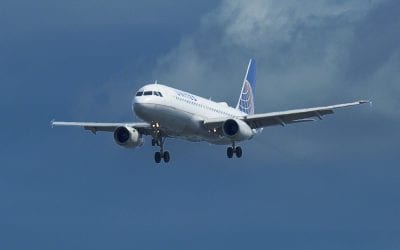As many travel articles and posts have noticed, airlines are making an increasingly large part of their revenue from change fees. Which, while sometimes irritating, is certainly their right.
From a travel agent perspective, it’s certainly not our favorite part of the business. It’s hard to tell a client who is frustrated over a fee that first, it’s not our rule, and second, and second, that we have to charge an additional service fee on top of that. (Even in the rare cases, mostly on international tickets, that airlines do pay commission now, they do not pay anything on change fees.)
But what makes me craziest about the change fee rules is this: Airlines don’t always follow them.
Witness two cases this week in point:
The first were two people traveling to Paris about in a little over a week. The wife called and asked what it would take to change her return. The fare rule, which I verified with United, stated a $250 change fee, but that any changes made prior to departure required the fare to be recalculated, so that the travelers would pay the new fare plus the penalty.
In this case, the fare had gone up about $400. There was also the option of waiting until after departure and changing the ticket then just for the flat $250 fee, if the space was still available. I suggested to the clients that they ask at the Red Carpet Club upon departure, as sometimes agents there can make changes once you have checked in for your outbound.
They decided not to pay the higher fare, but the husband, an elite frequent flier member, called to check with United to see how much return space was available, to better judge their chances. The agent on the phone offered to change it for him for simply the fee. Which, of course, he accepted.
In the second instance, a client had a deeply discounted business class ticket on British Airways returning from Barcelona. The fare rules stated that the date could be changed for $400, but not the routing. She was on a European trip and decided to skip the same portion, so we were looking at the best possible prices to get her from Germany, where she was, to Barcelona to catch her return flight.
But at the airport in Munich, she talked to a ticket agent, originally about what would happen if she just didn’t fly the Barcelona to London portion. She explained that she would be staying in Germany and thought – correctly – that it would be cheaper to fly to London.
The agent, however, offered to reroute her entire return, and fly her from Munich via London to Miami, for a total of $900. A significant amount to be sure, but a huge time-saver. While still in the airport, she called me to report this offer and to ask my opinion. I called reservations in the U.S. on the other line. They told me again that such a change was not possible.
So I told her to go back to the counter, and sure enough, they reissued the ticket. When I later called our sales office to ask if there had been some rule change we hadn’t heard about, the supervisor looked at the ticket, laughed and said, “Nope, that’s just the airport, tell her she got lucky.”
I actually would have no problem if airlines announced changes made directly were cheaper. Though, in fact, most airlines charge additional fees for phone changes. (A few airlines, like JetBlue and Virgin America, charge discounted fees for changes on their sites.)
In fact, as most travel agents will attest, mistakes on change fees are a leading cause of airline “debit memos” which are bills sent by airlines to travel agents for doing something they don’t like, or for undercollecting penalties. And in these cases, had we waived the new fare for the United ticket, or allowed a routing change for the British Airways ticket, we would have been socked with heavy penalties.
In both cases here, the clients ended up ahead. But it meant extra time for both our agency and the airlines involved. Not only do these kind of incidents make travelers less likely to trust travel agents, but also they contribute to a culture where travelers end up calling repeatedly until they get tired of asking, or get the answer they want.
And airlines wonder why travelers don’t trust them.
(Photo: afagan/Flickr Creative Commons)
Janice Hough is a California-based travel agent a travel blogger and a part-time comedy writer. A frequent flier herself, she’s been doing battle with airlines, hotels, and other travel companies for over three decades. Besides writing for Travelers United, Janice has a humor blog at Leftcoastsportsbabe.com (Warning, the political and sports humor therein does not represent the views of anyone but herself.)




